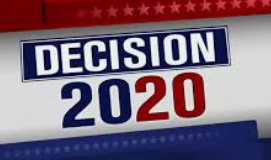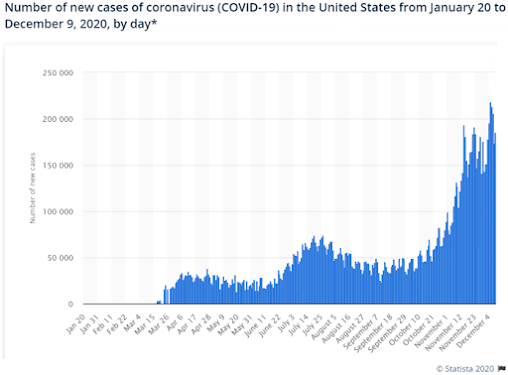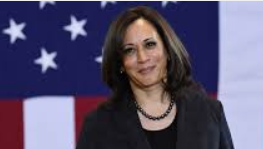In a month, Joseph Robinette Biden, Jr. takes the oath of office as the 46th President
of the United States and Kamala Devi Harris the oath as the 49th Vice President of the United
States. She becomes the first woman to
hold either office.
States and Kamala Devi Harris the oath as the 49th Vice President of the United
States. She becomes the first woman to
hold either office.
They take over at a difficult,
perilous time. A once- in-a-century pandemic rages, accompanied by devastating
economic consequences. The country remains politically and racially divided as killings by police of African
Americans continue
and criminal justice
in-a-century pandemic rages, accompanied by devastating
economic consequences. The country remains politically and racially divided as killings by police of African
Americans continue
and criminal justice  reform remains undone. Climate change poses an existential
threat to the entire planet. Biden and Harris have plenty to do and we have
some advice for them on their agenda.
reform remains undone. Climate change poses an existential
threat to the entire planet. Biden and Harris have plenty to do and we have
some advice for them on their agenda.
COVID, COVID, COVID
Biden has long acknowledged subduing the Coronavirus pandemic would represent his first and most pressing challenge. It’s
difficult not to view the leadership void on COVID-19 as the Trump
Administration’s greatest failure. As to Biden’s challenge, we recognize that
not only did Trump fail through inaction (e.g., never effectively using  the Defense Production Act) and lies (“We’re turning the corner.”),
he made things worse by poisoning the well with the public in ways that will
make Biden’s job more difficult.
the Defense Production Act) and lies (“We’re turning the corner.”),
he made things worse by poisoning the well with the public in ways that will
make Biden’s job more difficult.
Biden thinks (correctly) we can tamp
down the virus through measures like mask wearing and  social distancing until
vaccines essentially eviscerate the disease. Because of Trump’s politicization
of mask wearing and social distancing, Biden will have difficulty getting buy-in
on sacrifices that fight the virus in the interregnum between now and widespread
vaccine distribution next spring and summer.
social distancing until
vaccines essentially eviscerate the disease. Because of Trump’s politicization
of mask wearing and social distancing, Biden will have difficulty getting buy-in
on sacrifices that fight the virus in the interregnum between now and widespread
vaccine distribution next spring and summer.
By tying vaccine development to his re-election campaign, Trump
made some think vaccines now being rolled out were rushed for political
purposes. Combine that with a growing, general anti-vax crowd and skepticism
about medical researchers based on history in the black community, not as many
people may take a vaccine as needed for complete effectiveness.
Biden must enlist every political icon
(former  Presidents Clinton, Bush, and Obama say they’ll get vaccinated publicly), celebrity, community leader, and
trusted religious figure in encouraging vaccination and adherence to the
measures still needed for suppressing the virus. Without beating COVID-19, Biden
can’t get the economy going. He must push for a new stimulus/relief package
from Congress. Yes, we
Presidents Clinton, Bush, and Obama say they’ll get vaccinated publicly), celebrity, community leader, and
trusted religious figure in encouraging vaccination and adherence to the
measures still needed for suppressing the virus. Without beating COVID-19, Biden
can’t get the economy going. He must push for a new stimulus/relief package
from Congress. Yes, we  know Mitch McConnell
will likely stand in the
way, but Biden must make clear to the American people who stands with whom. A
president who pushes for what many Americans need so badly could make a
difference. Biden can show there remains that thing called the “bully pulpit.”
know Mitch McConnell
will likely stand in the
way, but Biden must make clear to the American people who stands with whom. A
president who pushes for what many Americans need so badly could make a
difference. Biden can show there remains that thing called the “bully pulpit.”
Race
At some point, every American
president gets an exam question on race. Nearly all fail. Biden
has a unique opportunity because, based on the protests last summer, much of
the country seems ready to try. The old political barriers remain, but that’s
no excuse for inaction. We see several legislative approaches Biden should support
and push for:
exam question on race. Nearly all fail. Biden
has a unique opportunity because, based on the protests last summer, much of
the country seems ready to try. The old political barriers remain, but that’s
no excuse for inaction. We see several legislative approaches Biden should support
and push for:
·
enactment
of the John Lewis Voting Rights Act (it’s already passed the House);
·
revising
many of the actions taken in the 1994 crime bill Biden played a role in passing, emphasizing
reducing incarceration for minor drug offenses;
·
limiting
criminal and civil immunity in police shooting cases;
·
ending
no-knock warrants; and
·
reform
measures that would foster increased use of psychologists and social workers,
not police officers, in certain domestic situations and other encounters that
often lead to police shootings.
State and local governments probably can accomplish more on
some of these things, but federal legislation could establish goals and
guidelines.
We also think there’s merit in dusting off President
Clinton’s “National Conversation on Race” idea. We have an open mind about what
form such an effort should take. We know one thing: if we won’t talk about a
problem as big, as morally important as this, it won’t ever get solved.
Climate
We’ve written on this a few times, but not enough. We promise we’ll do
better. This year – this awful 2020— demonstrated the issue’s importance. Wildfires
in the west, storm damage in the middle of the country, and hurricanes and tropical
storms in the Southeast and on the Gulf Coast represent the most visible
examples of the gravity of the climate change problem. At least now we have a president who doesn’t
deny the science and accepts that not much time remains for addressing the problem.
Biden has taken two steps we heartily endorse. He says he’ll
immediately put the United States back into the Paris Climate Accord. This signals the new administration’s seriousness
about making America a major participant in anti-climate change efforts.
Second, Biden has named former State Secretary John Kerry his special climate advisor. Kerry
knows this issue well and will sit on the National Security Council since climate change constitutes a
national security issue.
We suggest an “all of the above” climate
approach that advocates multiple ideas. Some special interest will fight every
climate proposal. Even corporations professingsupport for action on climate
change present much different ideas than climate activists. The administration, therefore, should not hang its hat on any one solution. It
will lose legal, legislative, and administrative battles, so it needs a
comprehensive, multi-faceted approach. We see this problem as so big and so
important; Biden must remain creative and push every idea that might do some
good.
What advice would you offer on the
Biden-Harris agenda?



















































